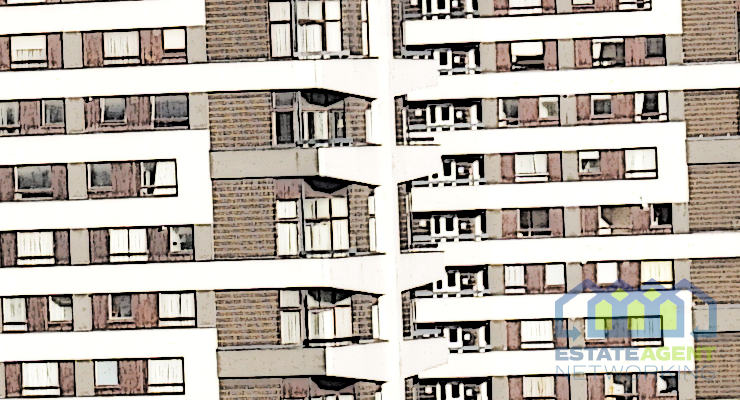What AI Can and Can’t Fix in Block Management
By Robert Poole, Director – Block Management, Glide Property Management, part of LRG
In an industry increasingly shaped by regulation, rising expectations and squeezed margins, the promise of AI and automation in block management is understandably appealing. The idea of freeing property managers from repetitive tasks, improving compliance, and streamlining communication offers significant operational value. But while technology has the power to transform, it isn’t a silver bullet. The true benefit lies in combining systems with the human qualities that underpin great service.
AI and automation are already making significant inroads into core processes. For example, new tools are capable of reading and extracting key action points from fire risk assessments with 90-95% accuracy. That alone can save property managers hours per building. Elsewhere, automated diagnostics, maintenance scheduling, and even AI-generated email responses are being adopted to reduce manual workload and ensure consistency. Artificial intelligence is also being used to prepare for AGMs, create detailed audit trails, and analyse leases for obligations or breaches. All of this contributes to better oversight and a stronger paper trail.
However, automation isn’t just about cost-cutting or efficiency. The real opportunity lies in allowing property managers to focus on important activities such as building trust, resolving disputes, and developing long-term relationships with residents. The role of a property manager is already complex. It combines technical expertise with soft skills: managing budgets, overseeing contractors, handling complaints, and navigating complex legislation. Technology can support those functions, but it cannot replace them.
Equally important is how technology changes the expectations of leaseholders and residents. As more people use tools like ChatGPT to interrogate service levels, understand their legal rights, or craft detailed correspondence, the quality of engagement increases. Property managers must be ready to meet that challenge with clear, evidence-based answers and full transparency. AI can help them meet that challenge, but it is no substitute for judgment, empathy and experience.
Technology is also helping raise the bar when it comes to transparency. Cloud-based portals allow residents to view real-time updates on repairs, financial documents, and compliance reports. Dashboards can be customised for different stakeholders, from freeholders and developers to Residents’ Management Company (RMC) directors and leaseholders. This isn’t just about visibility, it’s about building confidence in the service being provided. That’s where the human element becomes critical again: knowing what to share, how to frame it, and when to intervene personally.
Training and change management are also vital. Proptech solutions are only as effective as the people implementing them. Ongoing staff training, user adoption support, and clear policies for how tech integrates with existing workflows are essential to long-term success. Companies that treat tech as a bolt-on rather than a strategic enabler risk wasting both money and time.
Looking ahead, we can expect to see wider use of predictive maintenance and smart sensors, monitoring everything from water flow and fire doors to ducting and energy usage. AI will become more involved in budget forecasting, lease compliance monitoring, and even in drafting tribunal submissions. But for all these benefits, the need for human oversight will remain. Technology can propose; people must still decide.
Predictive maintenance, enabled by smart sensors and AI, is going to play a transformative role in how buildings are managed. Instead of waiting for faults to appear or relying solely on scheduled inspections, systems can now monitor equipment performance in real time and identify potential issues before they become critical. For example, sensors can detect unusual vibrations in lifts, water pressure anomalies in plumbing, or airflow inefficiencies in ventilation systems; all of which can be flagged automatically and prioritised for early intervention.
This not only reduces the risk of unexpected failure but also allows property managers to plan repairs more efficiently, minimise downtime, and extend the lifespan of key building systems. It has the potential to dramatically reduce reactive maintenance costs while improving resident satisfaction.
Beyond machinery, predictive tech is being integrated into building fabrics, too. Fire door sensors, automated legionella testing, and real-time monitoring of communal lighting or HVAC systems are becoming more common. When paired with automated reporting and AI-driven insights, this technology provides managing agents with unprecedented visibility. It shifts the role of property management from reactive to preventative and gives leaseholders greater confidence that their homes are being looked after with foresight, not just compliance.
Ultimately, the most successful managing agents will be those who embrace a hybrid approach. They won’t fear AI; they’ll use it to reinforce their professionalism, enhance service delivery, and improve resident engagement. They’ll recognise that while automation can reduce friction and increase speed, it is the human connection that drives trust.
The future of block management isn’t about replacing people with machines. It’s about people using the right tools to deliver better outcomes for the communities they serve.









